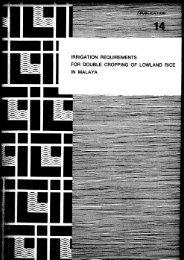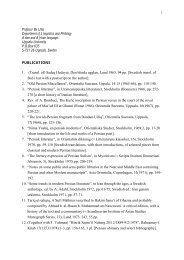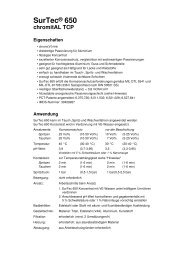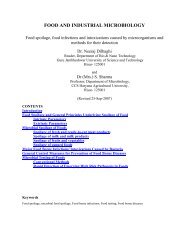On the Future of Indigenous Traditions - Munin
On the Future of Indigenous Traditions - Munin
On the Future of Indigenous Traditions - Munin
You also want an ePaper? Increase the reach of your titles
YUMPU automatically turns print PDFs into web optimized ePapers that Google loves.
The positive side <strong>of</strong> it is that people like him who have taken initiative for reviving it<br />
have changed <strong>the</strong> opinions <strong>of</strong> many in <strong>the</strong> district. Earlier Adivasi people had<br />
difficulty going to <strong>the</strong> “open market” (local term used for <strong>the</strong> District and Civil court<br />
<strong>of</strong> <strong>the</strong> state) for land dispute cases which is not <strong>the</strong> case with <strong>the</strong> customary system.<br />
He claims that <strong>the</strong>re are “good people coming as initiatives are taken to find capable<br />
people in <strong>the</strong> running <strong>of</strong> <strong>the</strong> customary system.”<br />
While fur<strong>the</strong>r explaining <strong>the</strong> nomination and appointment he also gives a background<br />
<strong>of</strong> <strong>the</strong> basis in which a Manki is selected. He stressed, that <strong>the</strong>ir responsibility is to<br />
represent and uphold <strong>the</strong> Adivasis collective interest and its values, and be fair in<br />
decision making. With regard to <strong>the</strong> nomination and appointment <strong>of</strong> <strong>the</strong> Mankis he<br />
says, “… in our great grand parents time to save our land and our regions… for<br />
example, Icha Raja came and attacked several times to capture <strong>the</strong>se regions… and<br />
<strong>the</strong> one who led <strong>the</strong> defense line became <strong>the</strong>ir representative… people also gave him<br />
<strong>the</strong>ir consent… <strong>the</strong> one who has <strong>the</strong> strength and <strong>the</strong> courage leads…” Thus people<br />
nominate him as <strong>the</strong>ir Manki for his guidance and in return he has people’s support<br />
and consent his social administrative functioning. Manki was nominated because<br />
people needed him not because British <strong>of</strong>ficials appointed him during <strong>the</strong> colonial<br />
rule, Parya argues. He fur<strong>the</strong>r says, “The Manki system was here and where <strong>the</strong><br />
Manki system was not <strong>the</strong>re it was felt that such a system should exist for better<br />
functioning and co-ordination. And <strong>the</strong>refore through <strong>the</strong> British authority with <strong>the</strong>ir<br />
hokum~nama <strong>the</strong>y were appointed.” Here we also find that <strong>the</strong>re are different pirs,<br />
each one has its own area and villages. In one pir <strong>the</strong>re can be one Manki or more<br />
than one. For example, Parya is responsible for 28 villages, likewise <strong>the</strong>re is a Manki<br />
who is responsible for 60 villages, but <strong>the</strong>re is also one Manki responsible for just one<br />
village.<br />
What kind <strong>of</strong> functioning did <strong>the</strong> Manki system have during <strong>the</strong> colonial period and<br />
how is it now? He answered to this question by saying, “A civil crime which needs<br />
investigation such as murder, looting (taking away some ones belonging at gunpoint)<br />
with a death threat and rape etc. is handed over to <strong>the</strong> state police whereas <strong>the</strong> o<strong>the</strong>r<br />
disputes are handled by Manki because <strong>the</strong>se [former] were a new kind <strong>of</strong> crime.”<br />
Initially, Parya observes, that among <strong>the</strong> Adivasis such crime, i.e. murder, looting and<br />
rape etc. were not known until recently.<br />
89

















